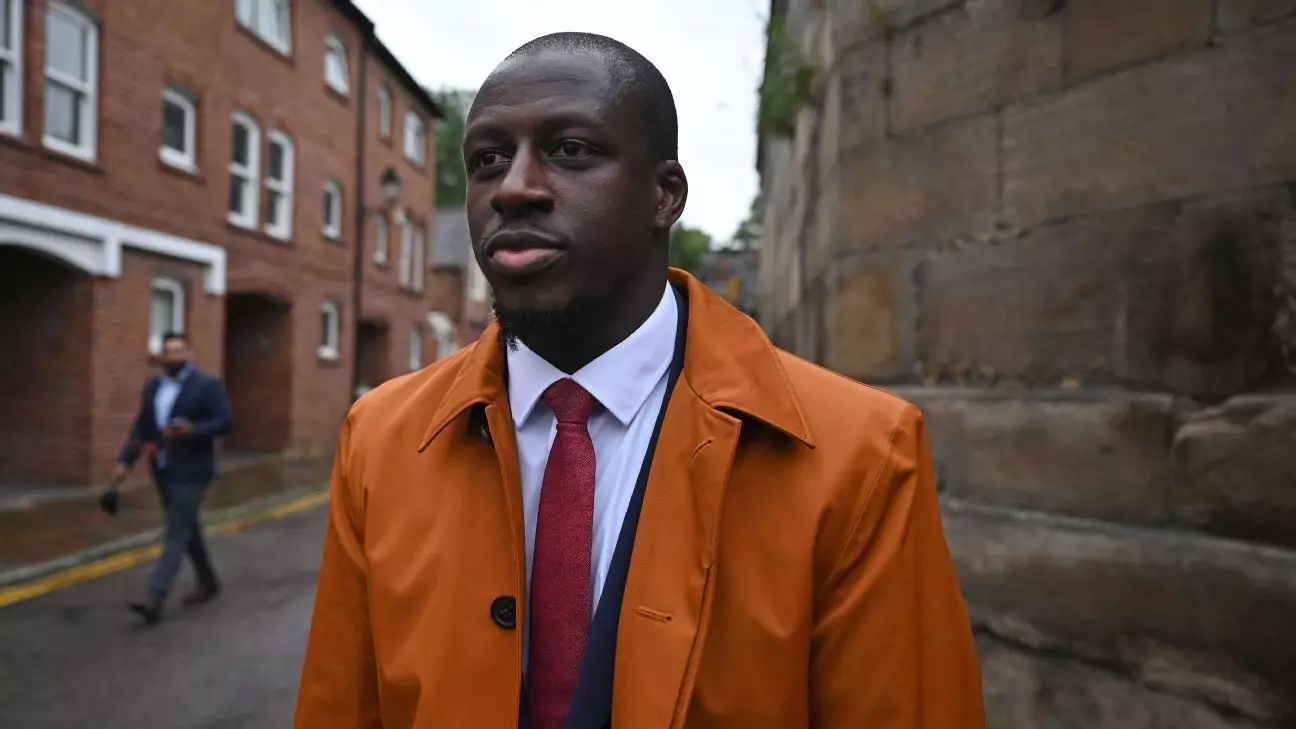Benjamin Mendy, the former Manchester City defender, has attained a significant legal victory, winning a claim for over £11 million in unpaid wages against his former club. This case sheds light on the intricate relationship between athletes and their employers, particularly when legal troubles cloud their careers. Mendy’s situation began in September 2021, coinciding with serious criminal charges that led to his suspension from the team. After being acquitted in early 2023 of multiple counts of serious crimes, he faced another battle in the courtroom concerning his contractual rights.
Mendy contended that Manchester City unlawfully withheld his wages during a time when he was unable to play, primarily due to his incarceration related to the charges against him. His argument hinged on the premise of wrongful wage deductions while he maintained his readiness to perform upon his acquittal. The club, for its part, justified the salary suspension by pointing to Mendy’s inability to fulfill his playing duties, primarily due to his legal predicaments.
Judge Joanne Dunlop’s recent ruling highlighted pivotal nuances in this dispute. Mendy was indeed in custody for a significant portion of the timeframe he claimed wages for; however, Dunlop identified that his readiness to work during periods of suspension indicated that some of the withheld wages could be rightfully reclaimed. This distinction is critical not only in Mendy’s case but also serves as insight into how sports contracts may not fully account for the complexities athletes can face.
This case is emblematic of much larger conversations surrounding player rights and club responsibilities, especially in instances of legal trouble. The outcome may have significant implications for other athletes facing similar predicaments. Mendy’s assertion that he was promised payment upon his acquittal raises questions about the ethical responsibilities clubs hold toward their players, particularly during times of personal crisis.
Furthermore, it challenges the traditional approach of withholding wages as a first response to legal challenges. Should clubs adapt their policies to ensure that players are treated with greater fairness, especially in situations where they are not at fault? Football is no stranger to controversy, and Mendy’s case has only intensified the focus on both the club’s obligations and the contractual protections afforded to players.
Following Judge Dunlop’s decision, Mendy expressed hope that Manchester City would honor their contractual commitments. The legal ruling opens a path for resolution, but it also highlights the lingering shadows of legal battles that can plague athletes long after a court’s final verdict. As Mendy moves to close this chapter and continues his football career by signing with French club Lorient, fans and analysts alike remain watchful of how this case might influence broader practices within the world of sports and contract ethics. The intersection of law, contract negotiation, and athlete welfare presents ongoing challenges that football must navigate.
